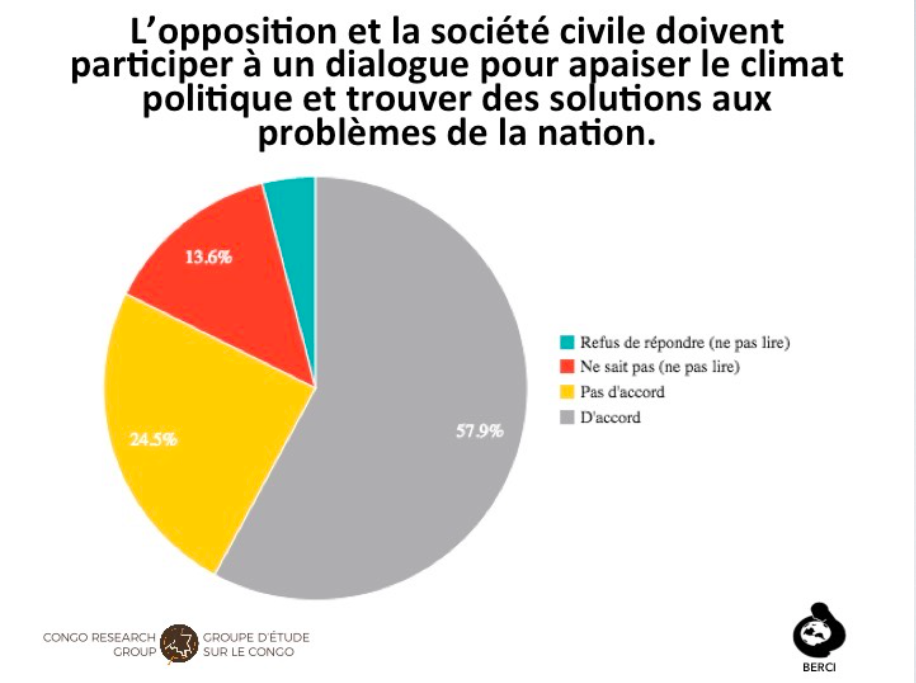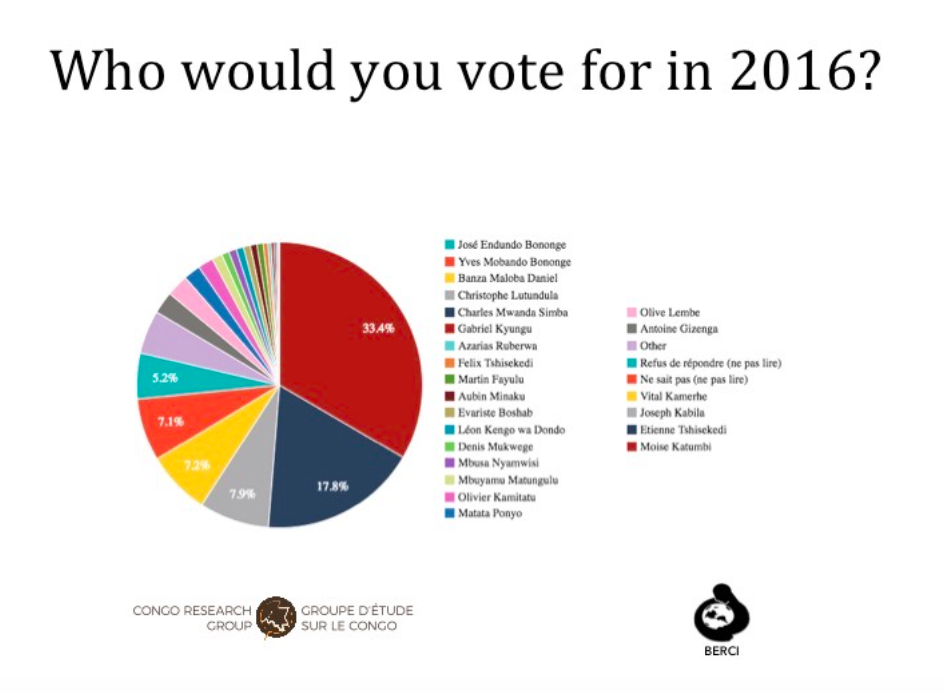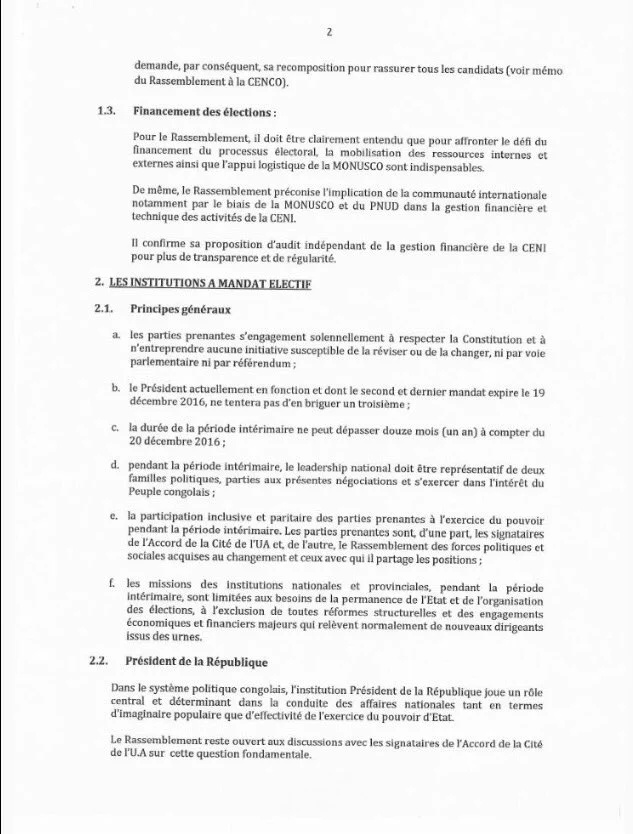On November 17, President Joseph Kabila named a new prime minister: Samy Badibanga, a dissident member of the UDPS opposition party. According to the presidents’ supporters, he was carrying out the Accord politique of October 18, which was hailed by regional leaders and the African Union as a way out of the current political impasse. The opposition meanwhile, lamented the postponing of elections until at least April 2018 (the deal is vague), the fact that Kabila can stay in power long past his constitutional mandate, and the lack of guarantees that the deal provides for a transparent electoral process. Badibanga’s nomination, moreover, was also seen as an affront by members of the Catholic Church, who had been trying to re-launch negotiations between the Rassemblement and the Congolese government.
As a reminder, the CRG/BERCI poll showed clearly that most Congolese (57,9%) want the opposition to participate in a dialogue to hash out a way forward. However, the dialogue that concluded in October excluded the most popular political parties and politicians––if elections were held in 2016, over 70% said they would vote for leaders (largely Tshisekedi and Katumbi) who boycotted the talks.


After the deal, the Catholic Church, through its episcopal conference (CENCO), took it upon itself to start shuttle diplomacy between the Rassemblement, which represents most of the opposition excluded by the deal, and the government. In fact, the same day that Badibanga was named, the papal nuncio in Kinshasa gave a press conference, saying that a solution would only come through talks between Kabila, Tshisekedi and Katumbi.
Of course, since a deal would almost certainly include a power-sharing deal, Badibanga’s nomination constitute a spanner in the works the CENCO’s efforts. A week after the nomination, one of Kabila’s close advisors––Senator She Okitundu––made it clear: there would be no new negotiations with the Rassemblement. At the most, the Rassemblement can simply sign on to the deal and join the government. According to one report, Badibanga is keeping a handful of ministries open for the Rassemblement in case they want to join.
At the same time, the Rassemblement has been hedging its bets. On the one hand, it had insisted that Kabila will not be president after December 19 and has called on its supporters to prepare themselves for demonstrations. The secretary-general of the UDPS yesterday called for a “resistance in every direction (tous azimuts), across the country,” invoking Article 64 of the constitution that says that every citizen has the duty to oppose the unconstitutional taking of power. Similarly, the Congolese social movement La LUCHA has launched a campaign called Bye Bye Kabila that intends to provoking his departure by December 19––they suggest that the president of the senate, Kengo wa Dondo, could become president for an interim period.
On the other hand, the Rassemblement has produced a proposal to CENCO (excerpt below) that outlines a possible deal, that leaves Kabila’s fate open. It says that Kabila should not attempt to change the constitution to stand for a third term, but it also explicitly leaves the question of who will be president open. Finally, it says that elections should take place by September 2017.
At the moment, however, it is doubtful whether any deal will happen before December 19––both sides seem to trust their chances in the streets more than any possible negotiation.

